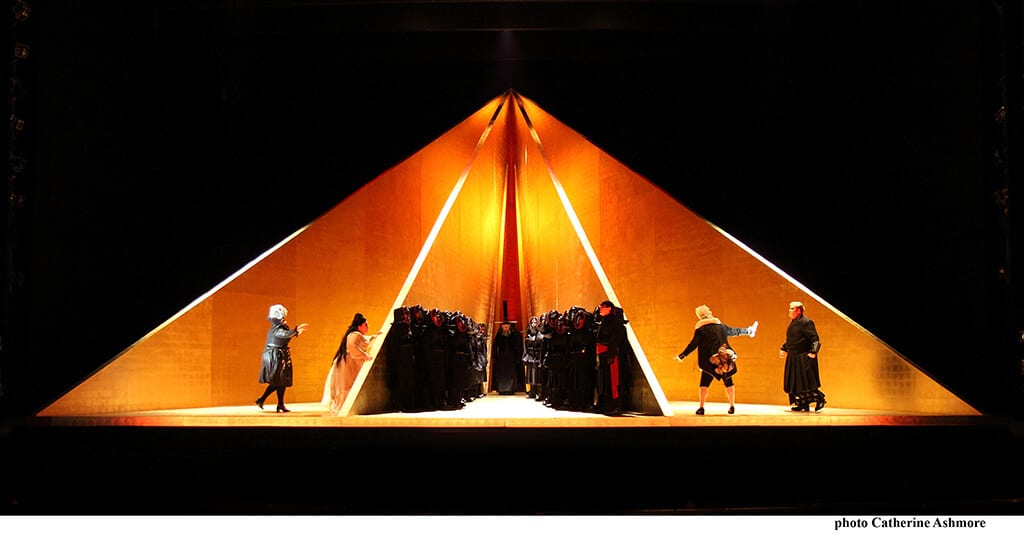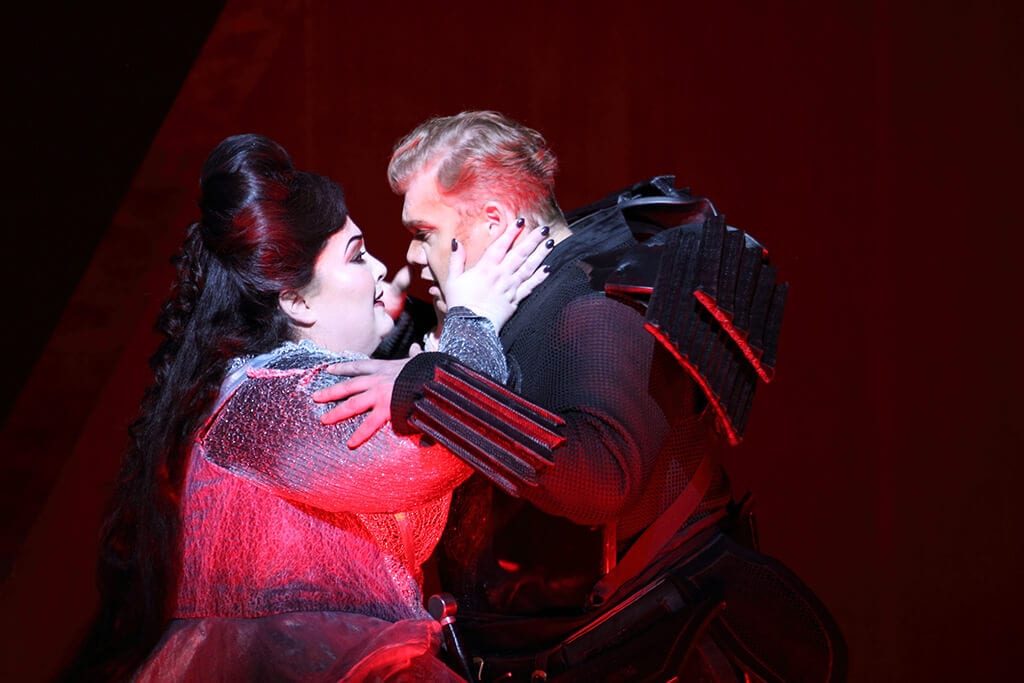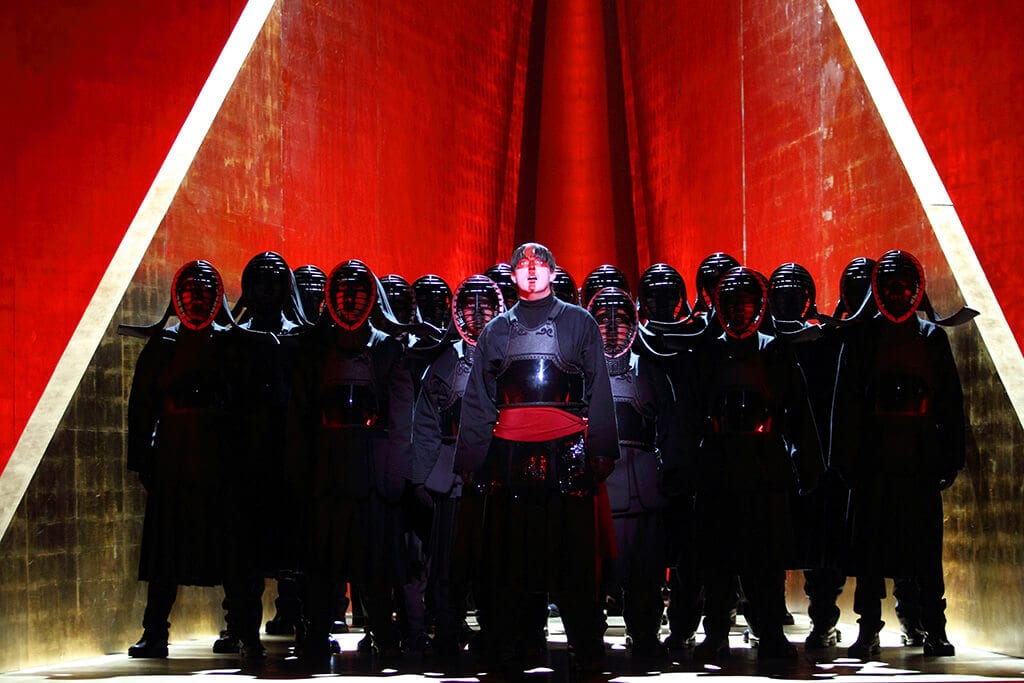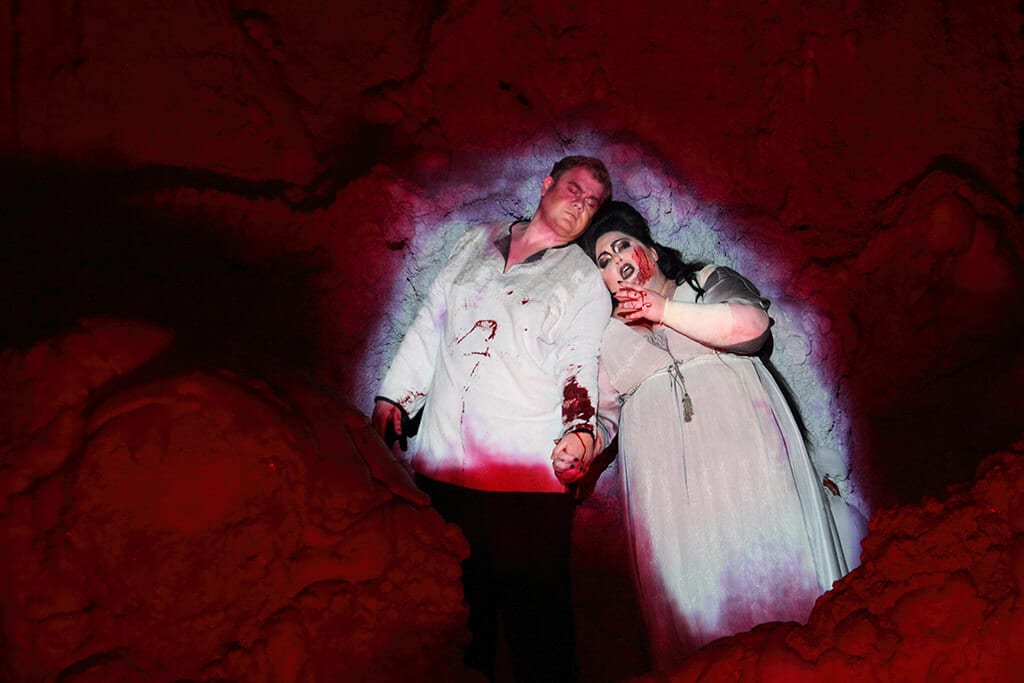This summer ENO presents a new production of Wagners’ Tristan and Isolde under the direction of Daniel Kramer, the stage designs by the acclaimed artist Anish Kapoor and the baton of Edward Gardiner that blend together to throw a new light on this masterpiece with some thought provoking ideas.
The main them of the opera is love but its genesis was a combination of the German mediaeval tale by Gottfried von Strassburg, of the philosophy of Arthur Schopenhauer but also of autobiographical elements, the passionate (though possibly platonic) love affair between Richard Wagner and Mathilde Wesendock, a woman who was married to one of his friends and supporters. As a consequence love here is a supernatural force that binds two individuals even against their own wills, a power from which they can only be released with death and final transfiguration.
After the Prelude, in which the orchestra announces and delivers the score’s intense chromaticism with precision, the first act opens in a tripartite pyramidal space where Tristan and Isolde act in separate segments of the stage, underlining the division between their male and female worlds. Tristan and Isolde get together in the middle segment only at the end, after drinking the love potion; but the army of King Mark appears immediately to separate them again in a sort of Star Wars scenic effect that, with the costumes of the soldiers, was definitely out of place. As out of place were the costumes of the servants with unsuitable wigs coming from an 18th century French madness. Isolde, sung by Heidi Melton, delivers her curse with passion, however her lack of power in the lower register doesn’t give, in general, enough weight to Isolde’s character. Throughout the performance we see Melton delivering only a unidimensional interpretation with moments of intense lyricism in her singing but generally without capturing the complexity of Isolde. Tristan, by contrast, is sung with great style by Stuart Skelton, who appears fierce and resolute from the beginning and shows immediately and then throughout an outstanding stage presence and dramatic understanding along with a rich voice that is completely suitable for this role.
The second act is set in a haunting lunar landscape. Night is the only time when the love of these two can be consummated but the moon is also a reference to the madness they are driven to by their passion. Tristan and Isolde can only love inside that concave, a sort of mini-moon on the stage, an intimate space lit by sparks of light. When their love duet is interrupted before reaching the climax by the appearance of the royal guards and the betrayed King Mark, the moon at that point shows the surface as we see it. Again, here, the action of binding the interrupted lovers into hospital beds as if they were being treated in a mental heath institute didn’t add further elements of comprehension and seemed like the arbitrary imposition of a director’s own preoccupations.
The third act gives us a minimalist backdrop with a fragment of that moon with changing colours and a powerful visual effect of the bleeding Tristan’s wound expanding onto a white canvas. This act is all centred around Tristan and his loyal servant Kurvenal, who seems to have a morbid relationship with his master in this production. Here Tristan’s desperation gave Skelton the chance to showcase the versatility of his voice with an interpretation rich in colour, employing varied timbres in delivering all the contrasting feelings. His acting in this sequence both physically and vocally is impeccable. In the end the Isolde’s Liebestod went almost unnoticed covered by the beauty of the orchestral sound.
The orchestra was, however, the real star of the night. The conducting by Edward Gardner was precise and expressive, bringing out skilfully the dynamics of Wagner’s score.
Overall, this is a very good production, with an interesting setting; and despite some unsuitable costumes, the interpretations by the singers are memorable and apt.






